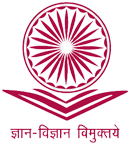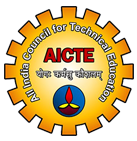About Distance M.Tech in Industrial Design
Distance M.Tech in Structural Engineering is a 2 year postgraduate degree which includes 4 semesters. Distance M.Tech in Structural Engineering is a program that deals with the design of the concrete structure's stability by using the best building materials and determining whether it is dependable for the long term and for human habitation.
The structure of different infrastructures is studied in the distance M.Tech. in Structural Engineering course, which also protects the safety of the infrastructure. Bridges, flyovers, hospitals, buildings, dams, airports, railroads, and a variety of other ideas, such as the program, are among the construction sites that include structural engineering.
Who Should Pursue Distance M.Tech in Industrial Engineering
For those who fit certain requirements and have specific career objectives in the field of civil and structural engineering, a distance M.Tech in structural engineering can be a great choice. Listed below are some potential applicants who could think about applying to this program:
Working Professionals in Civil Engineering
A distance M.Tech in Structural Engineering may be a good choice if you are currently employed as a civil engineer and wish to concentrate in structural engineering without taking a career break. It enables you to manage your obligations at work with continuing your education.
Civil Engineers Seeking Career Advancement
A distance M.Tech can give you the particular information and abilities you need to develop your career in the field of structural engineering after you have earned your undergraduate degree in civil engineering.
Aspiring structural engineers
A distance M.Tech program can provide the knowledge required to follow this career path for people with a love for structural engineering and an interest in developing and analyzing various structures.
Professionals in Related Fields
People who work in fields similar to structural engineering, such as construction management, architecture, or building design, may find it useful to further their education and improve their employment opportunities.
Engineers Working in Remote places
People who live in places with limited access to prestigious educational institutions offering regular on-campus M.Tech programs in structural engineering may find distance M.Tech programs to be very helpful.
People with Work or Family Commitments
A distance M.Tech program gives you the freedom to study at your own speed and place if your personal or professional obligations make attending a standard on-campus program difficult.
Graduates in civil engineering who are interested in research
A distance M.Tech program gives you the freedom to study at your own speed and place if your personal or professional obligations make attending a standard on-campus program difficult.
Is M.Tech through distance education valid?
Regarding the legitimacy of MTech distance learning, there are certain concerns. There are a substantial number of universities conducting and offering admission to MTech degree programs in the distant mode, but not all of them have gone through the UGC and DEB approval procedures. Candidates who wish to enroll in the Master of Technology (MTech) program must confirm that the universities they have chosen have been approved by the appropriate educational authorities.
University approvals to check before pursuing M. Tech distance education.
Anytime, Anywhere

University Grants commission
UGC

All India Council for Technical Education
(AICTE)

Association of Indian Universities
(AIU)
Education
Students with a B. Tech degree are eligible to apply for admission to the appropriate M. Tech program.Students who have earned an M. Sc. in science, mathematics, computer science, electrical engineering, or a related discipline are eligible to apply for admission to the appropriate M. Tech. program.MCA graduates may also apply for admission to M. Tech. computer engineering branches that are pertinent to them.
Fees for B. Tech Distance Education
50K – 80K Per Year (As fees varies according to universities)
Assessment & Examination
The following steps are commonly included in the exam and evaluation process for M.Tech Engineering students using distant learning:
Internal assessment (IA) : is a part of the evaluation that is based on work done on assignments, tests, and other coursework throughout the semester. IA is normally worth roughly 25% of the course's overall grades, though this varies from institute to institute.
The term-end examination (TEE): is a thorough test that is given at the conclusion of the semester. Normally, the TEE accounts for 75% of the course's overall grades.
Project: In certain institutes, the evaluation procedure includes a project. A research article, a design project, or an internship report are all acceptable project types. Although the weighting of the project varies from institute to institute, it normally accounts for 10% of the course's overall scores.
For each course, the required passing percentage is typically 40%. But certain institutions might have a greater pass rate.
Curriculum
|| Semester III & IV
| S. No. | Subject Code |
| MTSE 301 (1) | Advanced FEM and programming |
| MTSE 301 (2) | Advanced Foundation Engineering |
| MTSE 301 (3) | Design of Advance steel Structures |
| MTSE 301 (4) | Design of Earth quake Resistant Structures |
| MTSE 302 (1) | Stability Theory in Structural Engineering |
| MTSE 302(2) | Design of Tall Structures |
| MTSE 302(3) | Design of Offshore Structures |
Job options
Jobs directly related to your degree include:
|
|
||||||||
|
|
||Jobs where your degree would be useful include:
| Structural Engineer | Water Resources Engineer |
| Geotechnical Engineer | Construction Quality Control Engineer |
| Site Engineer | Construction Project Manager |
| Seismic Engineer | Structural Design Engineer |
| Civil Engineer | Highway Engineer |
| Construction Estimator | Project Engineer (Structural) |
| Foundation Engineer | Building Inspector |
| Retrofitting Engineer | Construction Materials Engineer |
| Bridge Engineer | Structural Steel Detailer |
| Urban Planner | SResearcher in Structural Engineering |
Latest posts from our Blog








